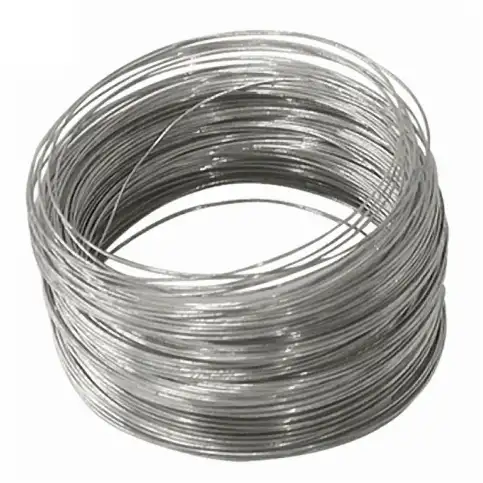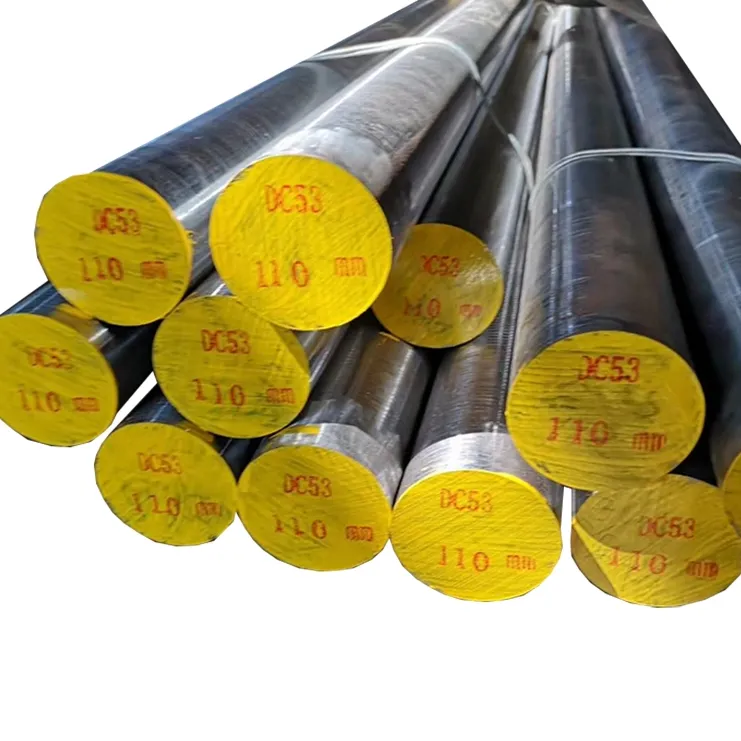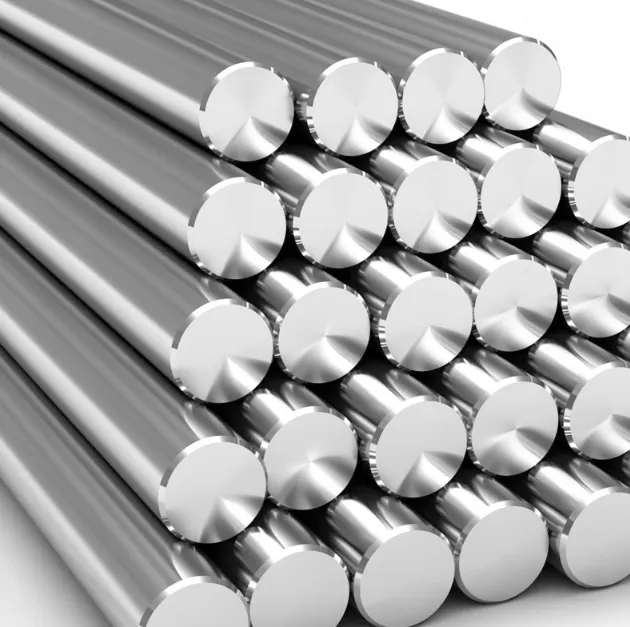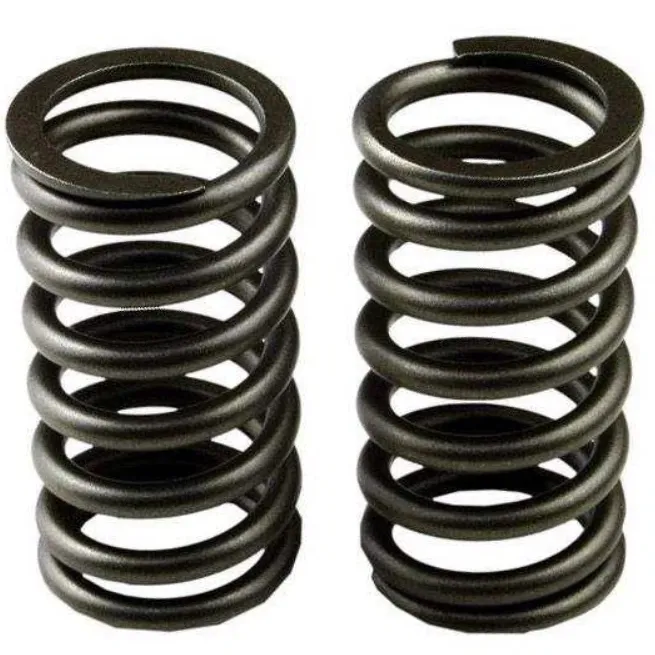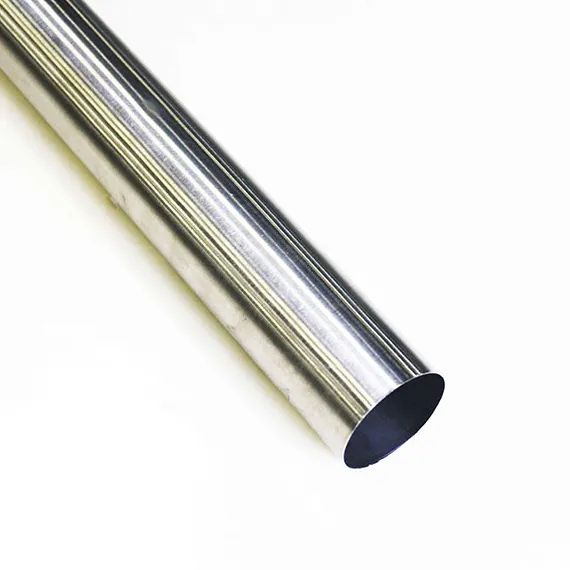Inconel 718 wire (UNS N07718 / W.Nr. 2.4668) is a precipitation-hardenable nickel-chromium-niobium alloy that uniquely combines very high tensile and creep-rupture strength at temperatures up to ~700°C (≈1290°F), excellent weldability and dimensional stability, and good resistance to many corrosive environments — making it the default engineering choice for high-strength fasteners, springs, gas-turbine parts, and oil-&-gas downhole components where temperature, strength and corrosion resistance are simultaneous design constraints.
Alloy 718 was developed in the 1950s–1960s to meet the needs of high-temperature steam and gas-turbine service. It is sold under trade names such as Inconel® 718 and Alloy 718, and is standardized across aerospace and industry with the common identifiers UNS N07718 and W.Nr. 2.4668. For wire and bar forms the aerospace product specifications commonly referenced are AMS 5662 / AMS 5663 (solution-treated and aged conditions) among other AMS/ASTM standards.
Chemical composition
The table below gives the typical composition ranges used for engineering spec sheets (presented as weight %). These are the baseline values most producers and distributors quote for Inconel 718 wire (UNS N07718). Exact certiified values must come with each mill COA.
| Element | Typical composition (wt. %) | Function / notes |
|---|---|---|
| Ni | 50.0 – 55.0 (balance) | Base metal — matrix for strength & corrosion resistance. |
| Cr | 17.0 – 21.0 | Oxidation resistance and corrosion protection. |
| Fe | 17.0 – 21.0 | Solid-solution strengthening; cost balance. |
| Nb (Cb) + Ta | 4.75 – 5.5 | Precipitation hardening element (γ'' phase), main source of high strength. |
| Mo | 2.8 – 3.3 | Strengthening and corrosion resistance. |
| Ti | 0.65 – 1.15 | Works with Al to form γ' precipitates; contributes to hardening. |
| Al | 0.20 – 0.80 | γ' precipitate former. |
| C | ≤ 0.08 | Controls carbides; low to avoid embrittlement. |
| Mn, Si, P, S, Cu, Co | Trace / low limits | Impurities / permitted minor additions — controlled by spec. |
(This composition table is synthesized from manufacturer datasheets and AMS/industry references to represent typical wires sold to UNS N07718. For design-critical purchases use the mill COA.)
Mechanical properties & heat treatments
Wire can be supplied annealed (soft) or aged to higher strength. Typical room-temperature values for common conditions are:
| Condition | Yield strength (0.2% offset) | Ultimate tensile | Elongation (in 50 mm) | Hardness |
|---|---|---|---|---|
| Solution heat-treated (AMS 5662, annealed) | ~70–110 ksi (480–760 MPa) varies by diameter | ~120–160 ksi (830–1100 MPa) | 20–30% | ≤ 277 HB (annealed) |
| Aged / solution + age (AMS 5663) | ~125–150 ksi (860–1035 MPa) | ~170–200+ ksi (1170–1380 MPa) | 10–18% | 36–43 HRC (aged ranges) |
Notes: actual mechanical results depend on wire diameter, cold drawing steps, and final aging schedule (time/temperature). For example, the typical aging for high strength follows solution treatment plus two-step aging cycles (e.g., ~720°C / 8 h + 620°C / 8 h — refer to AMS/producer tech sheet).
Equivalent grades and cross-references
Common equivalents used by procurement and engineering:
-
UNS N07718 (primary) — used globally.
-
W.Nr. 2.4668 — German Werkstoff number.
-
AMS 5662 / AMS 5663 — aerospace product conditions; frequently used for qualified wire and bar.
-
Common commercial names: Inconel® 718 (Cast/rolled/wire) — vendor trade name.
When specifying an “equivalent” ensure the condition (annealed vs aged), required testing (e.g., tensile, PMI, chemical), and traceability (mill certs, heat numbers) match your purchasing requirements.
Wire production, typical diameters and delivery forms
Typical forms: round cold-drawn wire coils, straightened cut-to-length rods, multi-coil spool formats, spring-annealed coil forms for spring manufacture. Common diameters range from 0.1 mm (fine wire) up to 12 mm+ for heavy wire; most industrial suppliers stock 0.3–6.0 mm for springs and fasteners. Suppliers can offer ^^special tolerances, surface finishes and packaging^^ for aerospace and medical use.
Manufacturing notes: wire is typically vacuum induction melted (VIM), then vacuum arc remelted (VAR) or consumable-electrode melted depending on the specification, followed by hot work, cold drawing, annealing and final conditioning per AMS/producer instructions. These melt routes reduce inclusions and ensure consistent properties for critical fasteners and spring stock.
Heat treatment, aging and effect on wire performance
Alloy 718’s exceptional strength comes from controlled precipitation hardening (γ'' and γ' phases) produced by carefully timed aging. Typical industrial approach:
-
Solution treat (for larger sections) to dissolve phases; cool.
-
Aging: two-step aging schedules produce peak strength (example: 720°C / 8 h + 620°C / 8 h — consult AMS for exact cycles).
For thin wire, cold working / drawing plus controlled aging may be used to reach desired spring properties. The presence and amount of Nb (niobium) critically control the γ'' precipitate density that gives Alloy 718 its high yield and creep strength.
Welding and filler wire considerations
Alloy 718 is notable for excellent weldability among high-strength Ni-base superalloys and is commonly welded with matching filler wires (ERNiFeCr-2 / FM718 family) that are designed to be age-hardenable and to match base metal properties after post-weld heat treatment. Use of specified welding filler and appropriate post-weld aging is essential for restoring mechanical properties and preventing crack susceptibility.
Corrosion resistance and high-temperature behavior
Alloy 718 offers good oxidation and corrosion resistance in the alloy’s useful temperature range. It maintains high strength to ≈700°C (≈1290°F) in many oxidizing environments. However, at prolonged exposure above about 650–700°C some microstructural instability may occur (careful selection of application temperatures and cycles is necessary). For sour environments (H2S / oil & gas) specific API / NACE conditions and qualifying heat treatments are required.
Typical applications for Inconel 718 wire
-
Aerospace: turbine disks, bolts, high-temperature fasteners, retention rings (wire used for springs and small fasteners).
-
Gas turbines / power generation: seals, springs, bolting where creep strength is required.
-
Oil & gas: downhole tools, high-strength fasteners and springs where corrosion and elevated temp combine.
-
Nuclear & defense: springs, clamp wires and other small but critical components.
Quality, certification & traceability
For mission-critical uses always require:
-
Mill Certificate (EN 10204 3.1 / 3.2) with full heat-lot traceability.
-
Material spec callout (e.g., UNS N07718 + AMS 5662/5663 or other agreed spec).
-
Testing: tensile, PMI (positive material identification), hardness, chemical analysis, inclusion rating if requested.
-
NACE MR0175 / ISO / API approvals when used for sour service or oil & gas applications.
2025 price comparison (USA / Europe / China)
Price for Inconel 718 wire varies strongly by region, ordering quantity, specification (AMS/traceability), and form (weld wire, coil, bright wire). The table below synthesizes available market figures for 2025; treat these as indicative market ranges in USD per kg for commodity procurement (large orders, FOB / EXW China or distribution in region). Always request live quotes for firm pricing.
| Region | Indicative 2025 price (USD / kg) | Notes |
|---|---|---|
| USA (distributor / domestic stock) | $50 – $65 / kg | Higher due to domestic testing, AMS traceability, and distributor margins. |
| Europe | $48 – $61 / kg | Elevated labor & energy; similar to USA for aerospace-grade material. |
| China (mill/ex-works) | $23 – $35 / kg | Lower mill-level pricing; final supply cost depends on certification, testing and export packaging. Chinese platform listings show usable ranges from ~$25–45/kg for common wire forms. |
| India / regional traders | $40 – $48 / kg | Varies by local production and certification. |
What drives price: raw nickel & niobium metal costs, energy and processing (VIM/VAR), certification requirement (AMS & traceability adds cost), diameter and drawing complexity, and regional logistics. For 1–2 kg samples and small lots the unit price will be materially higher. For large, repeat orders MWAlloys can offer factory direct pricing and stock advantages.
Purchasing checklist and procurement tips
-
Specify exact alloy and condition: UNS N07718 + AMS 5662/5663 or the specific customer requirement; state aged vs annealed.
-
Ask for mill COA & heat number (EN 10204 3.1/3.2) — validate composition and mechanicals.
-
Request welding/filler matching if you will weld — ensure compatible ERNiFeCr-2 / FM718 filler is used.
-
Order samples and perform in-house PMI and tensile checks before qualifying supplier for production.
-
Buy from certified mills or authorized distributors when aerospace or nuclear QA is required.
-
For cost-sensitive buys, compare FOB mill quotes in China vs local distributor pricing; factor in freight, import duties and QA overhead.
Why choose MWAlloys for Inconel 718 wire
MWAlloys is a China-based mill & trading group that stocks Inconel 718 wire in multiple diameters and conditions. We offer:
-
100% factory ex-works prices for bulk purchases (competitive FOB/EXW quotes).
-
Fast stock delivery for standard diameters (we keep common coils in inventory and can provide same-week shipments on many SKUs).
-
Full traceability and standard COAs (EN 10204 3.1) — optional AMS traceable lots available on request.
-
Custom drawing & packaging for spring wire and aerospace spool formats.
FAQs
-
What is the standard designation for Inconel 718 wire?
Typically specified as Inconel® 718, UNS N07718 (W.Nr. 2.4668) with product condition noted (AMS 5662 annealed; AMS 5663 aged). -
What are the key mechanical advantages of Alloy 718 versus other nickel alloys?
Alloy 718 has exceptional creep-rupture strength and tensile strength after aging, excellent weldability and dimensional stability — a balance of strength and toughness that many other nickel alloys do not match at 600–700°C. -
Can Inconel 718 wire be used for springs?
Yes, when produced and aged to spring-condition specifications; many suppliersonly deliver fine diameters as spring wire in specific tempers. Request spring-annealing and specified tensile/yield values from the supplier. -
Which filler wire should be used for welding Inconel 718?
Matched filler alloys such as ERNiFeCr-2 / FM718 are commonly used; post-weld aging is required to restore precipitation hardenable properties. -
Is Inconel 718 corrosion resistant to seawater?
It has good resistance to many aqueous and oxidizing media; for long-term seawater immersion or crevice conditions, evaluate application-specific corrosion tests and consider stainless or other nickel alloys if chloride pitting is a primary concern. -
What documentation should come with aerospace-grade wire?
Mill COA (EN 10204 3.1 / 3.2), heat number traceability, tensile/hardness test results, and any nondestructive test certificates required by contract. -
How do prices vary by region in 2025?
Indicative ranges for 2025 are roughly USA $50–65/kg, EU $48–61/kg, China $23–35/kg (mill prices); final delivered prices depend on certification and order size. Always request live quotes. -
Can Inconel 718 wire be heat treated after forming (e.g., after spring coiling)?
Yes, wire can be solution treated and aged; however, the heat-treatment schedule must be compatible with the final geometry and any surface coatings. -
Are there drawbacks / limitations to using Alloy 718 wire?
Long-term use above ~700°C can lead to microstructural instability; also cost is high compared to common stainless steels — justify selection by combined temp/strength/corrosion needs. -
How should buyers validate Chinese mill quotes?
Ask for mill certs (EN 10204 3.1/3.2), independent chemical checks (PMI), and performance test reports. For aerospace or oil & gas, require the supplier to meet the exact AMS/API/NACE contract requirements. Consider factory audits for critical long-term suppliers.
Closing summary
Inconel 718 wire remains the industrial standard when applications demand the rare combination of very high strength, weldability and corrosion resistance in a temperature band up to about 700°C. For buyers, the correct specification (UNS N07718 + AMS condition), traceable mill certs, and a supplier who can support the right condition and packaging are decisive. MWAlloys supplies Inconel 718 wire with factory prices, fast stock delivery for common sizes, and full traceability — contact our sales team with your diameter, quantity, and required certification and we will prepare a live quote with COA and lead-time.

